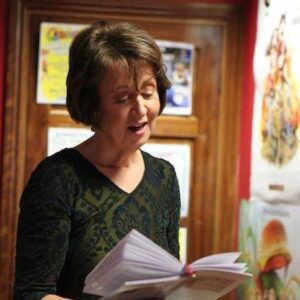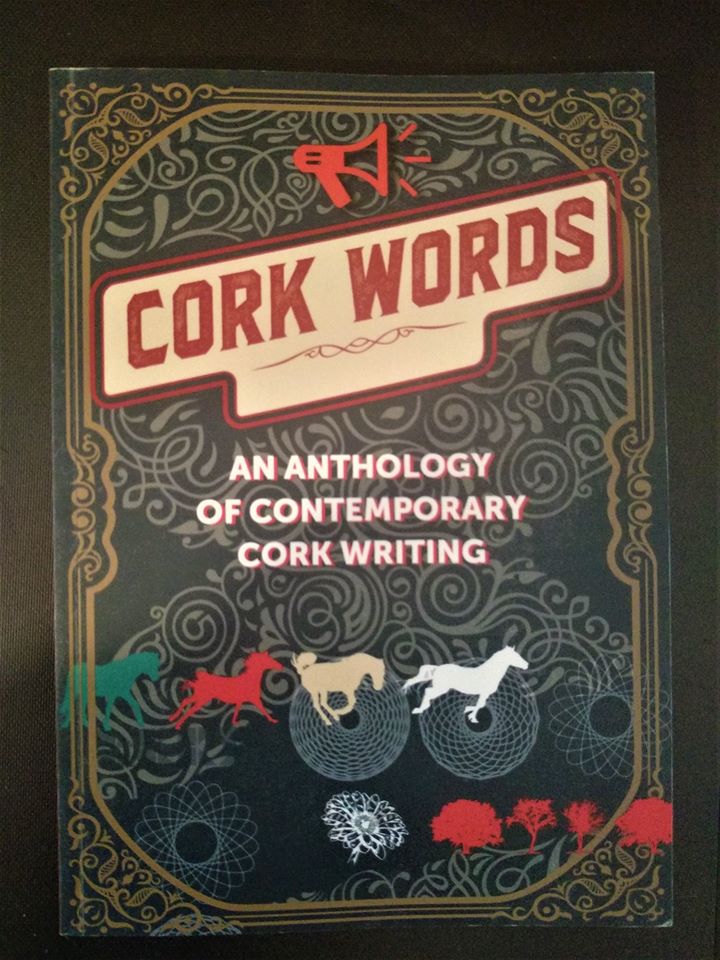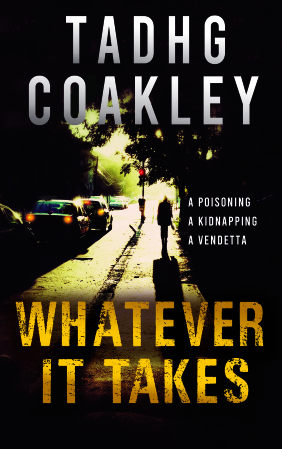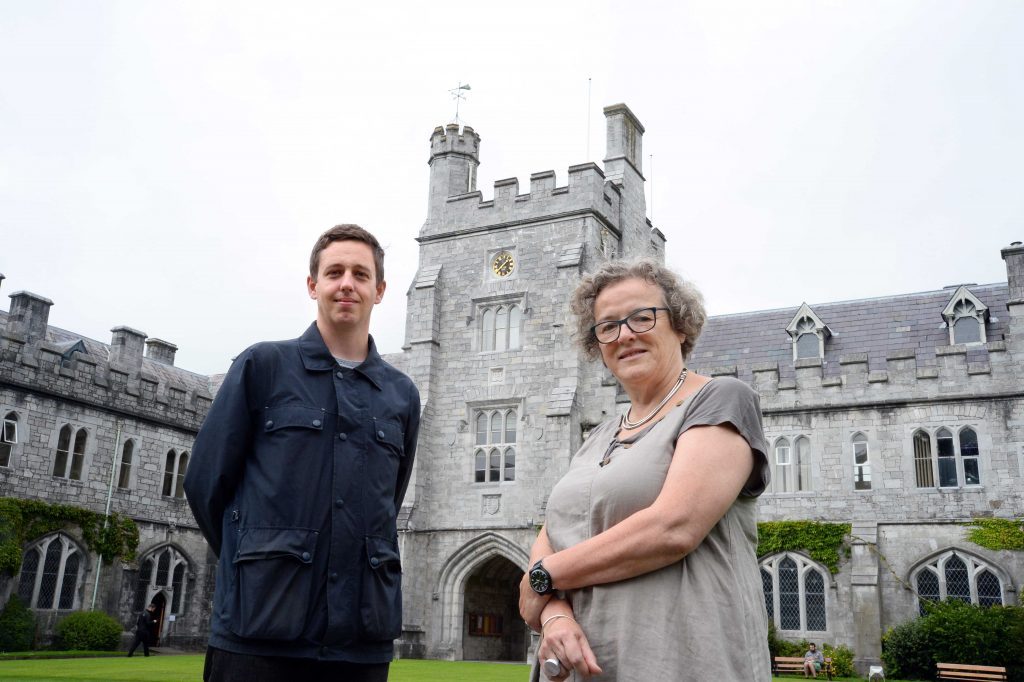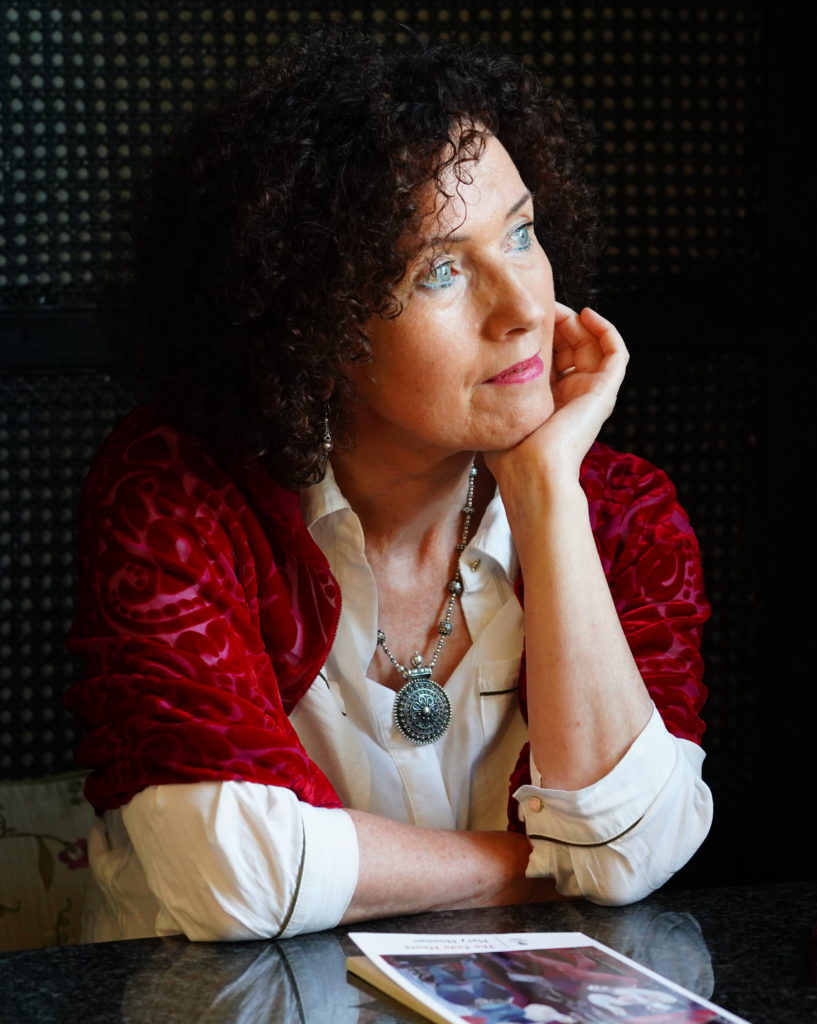
Coyau / Wikimedia Commons / CC BY-SA 3.0
A “compromised” boy deals with lockdown temptation and a grandmother makes an unlikely COVID-19 connection in these two short fictions. Jacqui Corcoran is an MA alumna from 2017 while Debra Fotheringham is a current MA student.
VECTORS
Nobody noticed the new teen in No.9 The Fairways, because he was well locked down under strictest, hysterical instruction. His mother dropped him off late at night, weary and dazzled after another day in the hospital and the three-hour drive from Dublin. She had custody, of course, but with his cystic fibrosis the lad was maybe safer down here.
Seeing his father softened the parting for the lad, but a few days into lockdown, the novelty had worn off and there wasn’t much to be said between them. Thank Christ for PlayStation, the father thought, but there wasn’t much thinking overall, and both were happy enough, or not unhappy anyway, doing their own things, whatever they were.
The online football could go all hours in this curfew-free house. There were no ground rules, only the mother’s nightly pleadings on the phone to stay put.
A couple of weeks into it, Kyle’s father shouted at him to come downstairs late one night. He was swaying like a tree and pointing at the bottom of the closed front door.
“That’s a fucking threshold, right?”
Kyle clenched his fists, wanting to get back to the game.
“You don’t cross it, right? I’m sick saying it to her. You tell her, OK?”
*
On screen the players were from all over, but mainly from Kyle’s Dublin school. Half-way through a match one night a locator App pinged and Brian came online.
“You’re here!”
Their mothers used to nurse together and the boys had kept sporadic on-screen contact after Kyle moved to Dublin.
“Yeah,” said Kyle, relieved he didn’t have to explain. “It’s shit. I can’t go outside the door.”
In daylight he would look through his attic window at tracks going through the hilly field of the now closed golf club. More and more seemed to form each day, worming their way towards the flanking forest beyond. He looked out for Brian in the groups and singles out there. One day he thought he saw him walking through the tall grass, but it could have been any boy in any family.
*
Brian invited him into a local online league. The concentration and lockdown focus forged quick bonds and Kyle’s feelings towards his faceless companions bulged with a sort of urgency. But he didn’t share his team-mates’ joy when they reached the final. The tick-tock countdown might be the beginning of the end. Soon they would head off to play games with different, real boys.
During the on-screen league final game Lucas said: “We sometimes go down the forest when the folks are asleep. Wanna come?”
Kyle thought of the trees at the end of the tracks.
He thought of the threshold. The fucking threshold.
“Nah, can’t.”
“Why?” said Lucas, who didn’t like to leave a question unanswered.
“My father, he’d probably strangle me.”
The match battered along into an overtime debate about who’d take the penalties.
“You take our first,” said Lucas and Kyle had to ask twice: “Who, me? Really?”
“About the woods,” said Lucas. “Sure, your father wouldn’t know, he’d be asleep.”
“Yeah,” said Aaron, who was usually quiet. “We wanna meet you face-to-face.”
Kyle was trying to focus on the shot. He was swelled up with it all and finding it hard to concentrate.
“Cop on, you lot,” said Brian, and Kyle pulled back his chair, away from the screen, willing Brian to shut the fuck up. Lucas came in quick though, like the brilliant team captain that he was.
“I’m only asking him, Brian. You can make up your own mind, can’t you?”
They know. Brian fucking told them, Kyle thought.
He was trying to guide his blurred player towards the goal, struggling to line up and take the shot.
“Well?” said Lucas.
“Maybe,” Kyle said.
“Maybe what?” said Lucas. “Maybe you can make up your own mind, or maybe you’ll come?”
“Maybe like shut the fuck up and let me take the shot, boy!” Kyle said in a thick, comical country accent.
And all the players online, even Lucas, even Brian laughed at that, because Kyle, it turned out, could be kind of funny.
Jacqui Corcoran
WRONG NUMBER
+1 (801) 617-5894/ Text Message/Thu, Apr 9, 10:15 AM
Is this the number I text to have my groceries delivered?
<nah. wrong number
I’m sorry. Do you know the number for the Neighbours Helping Neighbours organisation? My grandson was delivering my groceries but he’s not feeling well and doesn’t want to risk giving the virus to me if he has it.
<nah sorry. can u look it up online?
No, my internet isn’t working. I only have my phone. My grandson wrote the number down for me but I can’t read his writing very well. I was going to call him next.
<I looked it up 4 u. 8019347348. u were just one number off.
Thank you!
<no prob :smiley:
Thank you so much! My name is Pearl, by the way. I’m very appreciative of your help.
<I’m Dante
Thank you, Dante. Are you in Salt Lake City too?
<yep, I live in liberty wells
I see. My home is in The Avenues area.
<fancy :mansion:
Well, I suppose it’s considered fancy now. When my husband Ken and I first moved in sixty years ago, it was just another neighbourhood.
<is ur husband still alive?
No, he passed away ten years ago.
<sorry :sad_face:
It’s ok. The time we had together was wonderful and I’ve learned to live on my own.
<cool. ur grandson takes care of u now?
Yes, my daughter lives in New York City but my grandson moved back here to raise his young children and I’ve loved having them close.
<dope
Does your family live here too?
<I live with my mom. I’m 13. she’s a nurse at U of U hospital. She’s been gone a lot lately helping with the virus stuff
She’s doing wonderful work. I hope you’re proud. Are you continuing your schooling online?
<yeah, I was Zooming with my teachers and class but we had to switch to google hangouts cuz a hackers
I’m not really sure what that means but I’m glad you’re still able to learn.
<yeah, those are just online video things. its cool but I miss my friends
I’m sure you do. It’s hard to be alone and stuck indoors. I miss my friends too.
<sorry ur alone too :sad_face:
It’s ok. I’m glad I have a new friend to talk to. Feel free to text me any time, Dante, if you get lonely or even if you need help with your homework.
<dope. hope u can get ur food
Thanks, Dante. You have a wonderful day, ok?
<cool. u 2 :wave:
Debra Fotheringham
TOMORROW: “Somewhere Else” by Mary Noonan and “Visiting Rite” by Breda Joyce

